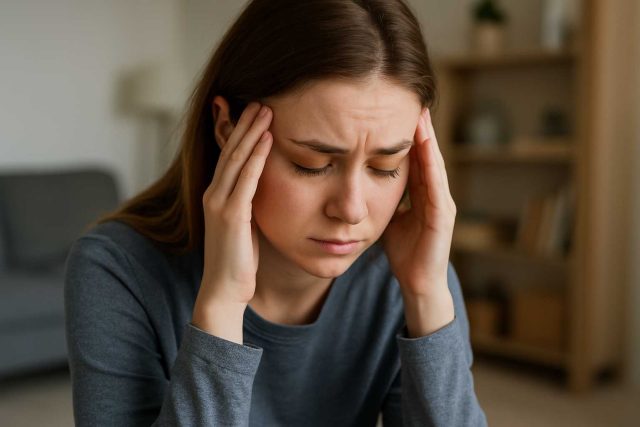Anxiety isn’t just worry—it’s a powerful emotional and physical response that can be recurring and debilitating. Whether it’s nerves before a big event or chronic anxiety disrupting daily life, understanding what anxiety really means and how it’s treated can help you manage it more effectively.
Table of Contents
- What Is Anxiety?
- Common Symptoms and Causes
- Evidence-Based Treatments
- Lifestyle Changes & Self-Care
- When to Seek Professional Help
What Is Anxiety?
Anxiety is the mind and body’s natural reaction to perceived threats—whether real or imagined. Though occasional anxiety helps us stay alert, chronic anxiety can hijack daily life. It may manifest as generalized anxiety disorder (GAD), social anxiety, panic attacks, or phobias.
Common Symptoms and Causes
People with anxiety often experience:
- Excessive worry or tension
- Feeling restless, fatigued, or irritable
- Physical signs such as rapid heartbeat, sweating, trembling, or stomach problems
Triggers include genetics, prolonged stress, past trauma, or imbalances in brain chemistry—especially in neurotransmitters like serotonin and GABA. Anxiety frequently co-occurs with other mental health challenges such as depression.
Evidence-Based Treatments
Cognitive Behavioral Therapy (CBT) is a go-to for anxiety. It helps you identify and change distorted thought patterns and develop coping strategies.
Medications often include SSRIs (like Lexapro or Zoloft) and SNRIs, which can take several weeks to work. Short-term options like benzodiazepines or buspirone may also be used as needed.
Other therapeutic options may include DBT, MBCT, exposure therapy, or targeted therapies depending on the form of anxiety.
Lifestyle Changes & Self-Care
Day-to-day strategies can significantly impact anxiety:
- Regular exercise—like walking or yoga—helps reduce symptoms.
- Relaxation techniques such as deep breathing, meditation, or visualization offer quick relief.
- Healthy habits—good sleep, balanced diet, limiting caffeine, and social support—create stability.
Combining self-care with therapy and medication typically yields the best results.
When to Seek Professional Help
If anxiety interferes with daily functioning—such as work, school, or relationships—it’s time to reach out. A mental health professional can help with an accurate diagnosis and tailored treatment plan. Even when anxiety feels manageable on the surface, seeking help early can prevent it from worsening.
For more insight and healing community stories, Discover More HealingWell Articles. And to connect with licensed professionals, visit Healthcare.pro.
Conclusion
Anxiety can feel overwhelming, but you’re not powerless. When paired with professional care and everyday self-help, transformation is possible. With the right mix of tools, understanding, and support, you can take control and reduce anxiety’s grip on your life.
FAQs
How can I know if it’s clinical anxiety?
If anxiety disrupts your daily life or lasts most days for weeks, it may be more than normal stress.
Is therapy or medication better?
Many find a combination works best—keep an open dialogue with your provider.
Can lifestyle changes alone help?
For mild anxiety, yes. But more persistent symptoms may require professional treatment.
Are benzodiazepines safe long‑term?
Not usually. They’re effective short‑term but can lead to dependence.
How long before I feel better?
Some treatments offer quick relief; SSRIs may take weeks. Patience is key.
This content is not medical advice. For any health issues, always consult a healthcare professional. In an emergency, call 911 or your local emergency services.




